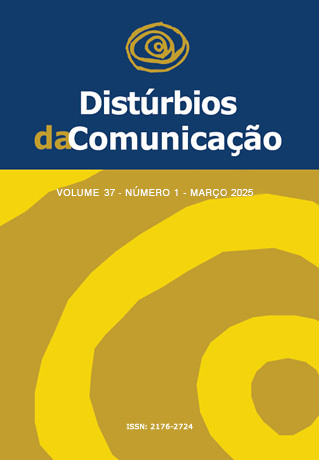Inclusão da temática LGBTQIAPN+ na formação acadêmica e nas políticas públicas em Fonoaudiologia
DOI:
https://doi.org/10.23925/2176-2724.2025v37i1e69677Downloads
Referências
Hancock A, Haskin G. Speech-language pathologists’ knowledge and attitudes regarding lesbian, gay, bisexual, transgender, and queer (LGBTQ) populations. Am J Speech Lang Pathol. 2015; 24(2): 206-21. doi: 10.1044/2015_AJSLP-14-0095
Jakomin JR, Ziegler A, Rio C, Suddarth R. Opportunities to learn transgender voice and communication therapy in graduate speech-language pathology education: Preliminary e-survey findings. Perspect ASHA Spec Interest Groups. 2020; 5(4): 876-83. doi.org/10.1044/2020_PERSP-20-00047
de Vries E, Kathard H, Müller A. Debate: Why should gender-affirming health care be included in health science curricula? BMC Med Educ. 2020; 20: 51. doi:10.1186/s12909-020-1963-6. doi.org/10.1186/s12909-020-1963-6
Mahendra N. Integrating lesbian, gay, bisexual, transgender, and queer issues into the multicultural curriculum in speech-language pathology: Instructional strategies and learner perceptions. Perspect ASHA Spec Interest Groups. 2019; 4(2): 384-94. doi.org/10.1044/2019_PERS-SIG14-2018-0007
Pratt-Chapman ML, Eckstrand K, Robinson A, Beach LB, Kamen C, Keuroghlian AS, et al. Developing standards for cultural competency training for health care providers to care for lesbian, gay, bisexual, transgender, queer, intersex, and asexual persons: Consensus recommendations from a national panel. LGBT Health. 2022; 9(5): 340-7. doi: 10.1089/lgbt.2021.0464.
Downloads
Publicado
Edição
Seção
Licença
Copyright (c) 2025 Gabriel Trevizani, Michelle Guimarães, Felipe Moreti

Este trabalho está licenciado sob uma licença Creative Commons Attribution 4.0 International License.









